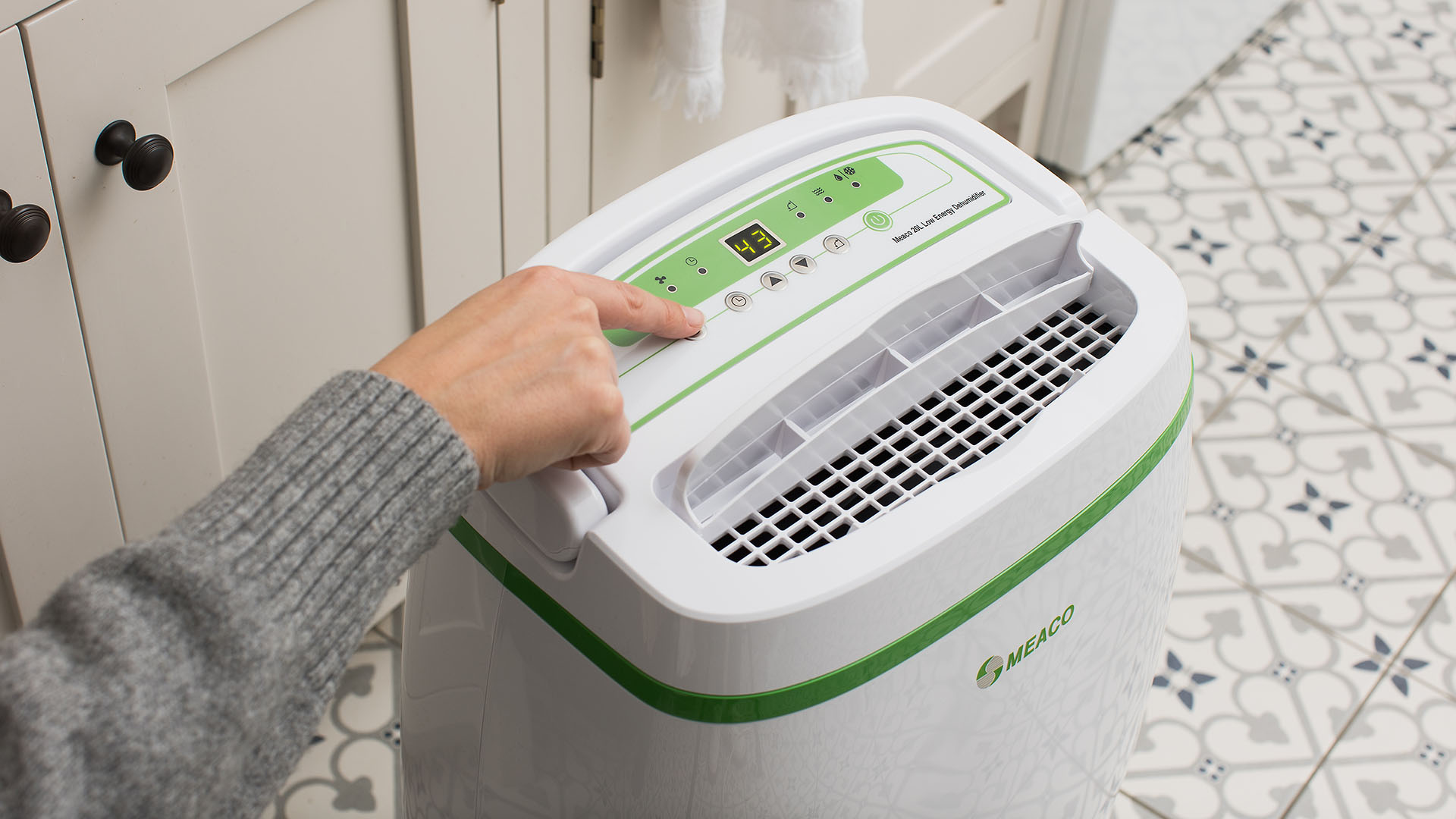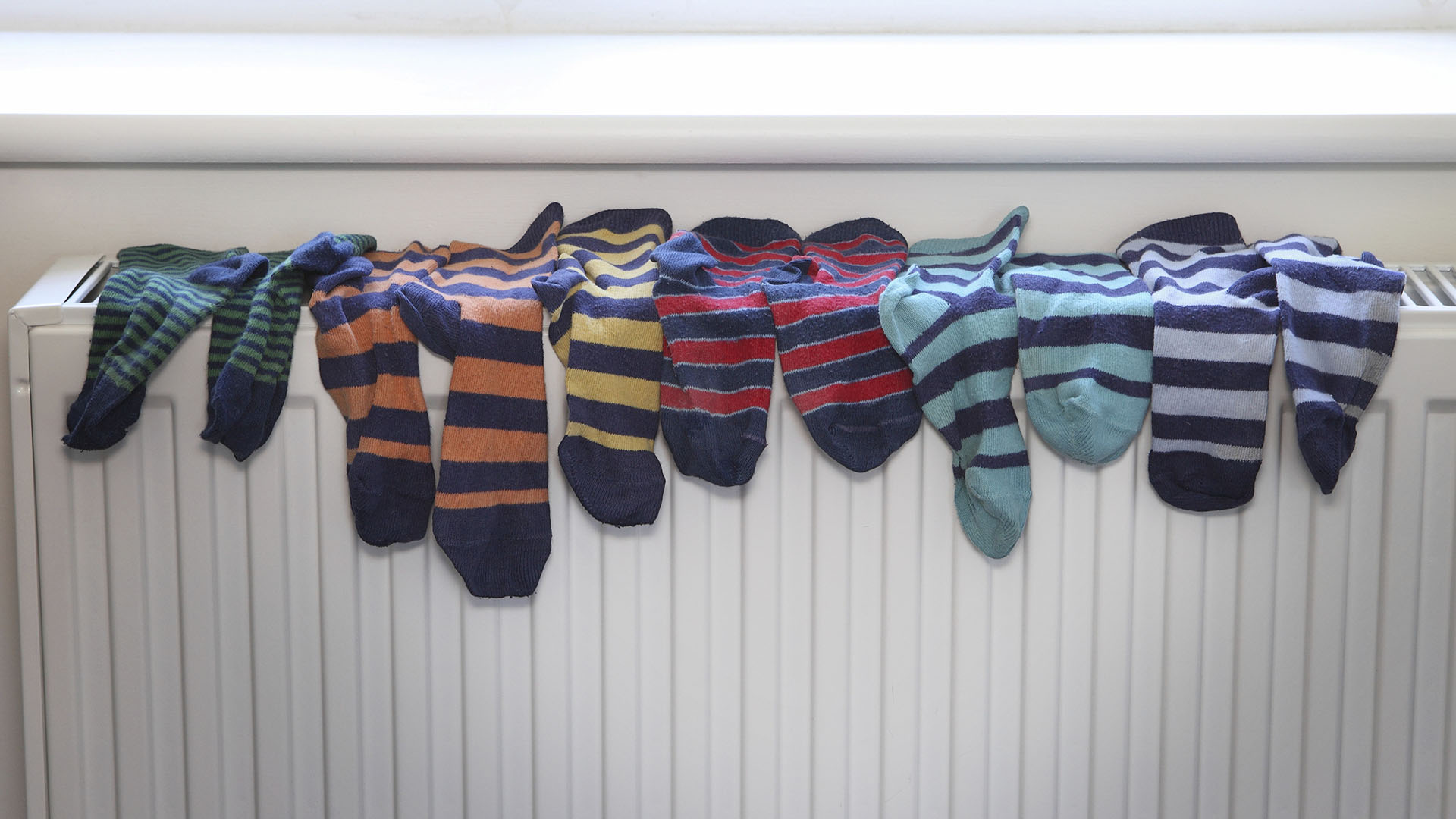
With temperatures dropping, many households are struggling to contend with rising energy prices, and how to stay warm without spending a fortune on heating. Research from comparison site Uswitch suggests over 1.7 million UK households won't turn on their heating this winter (as reported in the Guardian).
But avoiding putting the heating on when it's cold isn't great for you, nor is it good for your home in the longer term. According to Chris Michael, Managing Director at Meaco – a leading UK aircare appliance brand, and maker of some of our best fan picks – your secret weapon in these chilly times is an energy-efficient dehumidifier.
"When heating is reduced or turned off, homes become more vulnerable to damp, condensation, and mold – issues that can harm health and lead to costly repairs," he explains. "An energy-efficient dehumidifier can help prevent these problems while making homes easier and cheaper to heat."
Let's take a closer look at how that works, and if it's worth a try this winter…
If you're struggling with damp in the home, it might also be worth investing in one of the best air purifiers, as these can help remove mold spores or damp odors.
Why is damp such a problem in winter?
Many common household activities add moisture into the air in your home. Drying clothes indoors, cooking and showering are big culprits, but even just breathing indoors can have an impact. And that's a tricky one to avoid.
"Heated clothes rails, while effective at speeding up the drying process, also contribute to moisture buildup by evaporating water from the clothes into the air," explains Michael. "This moisture doesn’t disappear – it settles elsewhere in the home as condensation, particularly on cold surfaces like windows and walls. Over time, this can create the ideal conditions for damp, mould, and a persistent chill in the air."

If you're not putting your heating on regularly, that can exacerbate the issue, making it more difficult for your heating system to warm your home effectively when you do switch it on.
How can humid air lead to higher bills?
Damp air doesn't make for a pleasant living environment, but it's also bad news for your energy bills. "Humid air contains water vapor, which has a higher heat capacity than dry air, meaning it takes more energy to heat," says Michael. "This makes homes with high humidity feel colder, forcing heating systems to work harder to reach and maintain a comfortable temperature."

Using a dehumidifier to reduce moisture in the air down the optimal level of 50 per cent creates a more thermally efficient environment. That means your heating system shouldn't have to work so hard to warm the space, and you should be able to get your home to a more comfortable temperature without having to bump up the thermostat, argues Michael.
That's good news for your bills – the Energy Saving Trust estimates that lowering your thermostat by 2C could result in a 15 per cent saving on your heating costs.
How to choose a cost-effective dehumidifier
As with most household appliances, it pays to pick the right dehumidifier – some will do a far better job than others. If you're looking to lower your bills, you'll need a model that's cost-effective to run. That means finding the right balance of performance to cost.
Here are Michael's tips for what to look for when seeking an energy-efficient dehumidifier:
1. Low energy consumption
Check the wattage and look for an estimated cost per hour– energy-efficient models typically cost between 4p and 10p per hour to operate (depending on size and capacity)
2. High extraction efficiency
Extraction efficiency is generally measured in litres per kilowatt-hour (L/kWh). The higher the number, the more efficient the dehumidifier.
3. A dedicated laundry mode
Some dehumidifiers come with a dedicated laundry mode to target one of the biggest culprits when it comes to excess moisture in the home. These provide targeted drying a set amount of time before turning off automatically, so you can run them while drying clothes indoors.
4. Intelligent humidistats
If you're able to spend a bit more, it's worth considering a dehumidifier with an intelligent humidistat. These are sensors that monitor indoor humidity levels, and mean the dehumidifier will only switch on when required, thus avoiding wasted energy.







